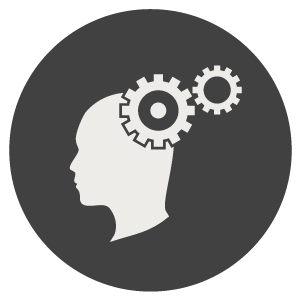Adapting Your Skills for the Future of Work
As someone who is wrapping up his formal education (a Ph.D. in Neuroscience), I join many of my friends and colleagues from similar positions in having extreme anxiety about my job security in the future. Technically speaking, I have extensive training in how to run scientific experiments that involve brainwave data and how to make sense of that data. List 5 companies (not universities) looking for that skillset. I’ll wait. I can hear the crickets through the internet.
Defining your transferable skills
But what if I was approaching this issue of hireable skills the wrong way? My expertise with brainwave studies make up some of my “hard skills”, but it's easy to overlook the “soft skills” that I acquired along the way. As I learned in Episode 3 of The Science of Work podcast, The Skills of the Future of Work, the skills for the future of work, and from the episode we can better define what are essential skills. Technology is progressing at a very rapid pace and many of the skills of the future are about contextualizing the interaction of this technology with our humanity. For example, to conduct my brainwave studies, I had to learn project management skills to train and coordinate the students (AKA volunteer staff) to execute the study protocols. While a company may not hire me for my ability to interpret brainwaves, they could hire me for my capacity to make sense of complex information and present it in an easy to understand manner to key stakeholders.
I spent at least 35 percent of my Ph.D. trying to make hardware and software cooperate, which while frustrating at the time gave me the critical thinking and troubleshooting skills that every company will need as technology becomes a bigger component of business as usual. This growing role of technology, unfortunately, means the automation of many jobs in the coming decades. But as key leaders in this episode of the podcast state, creativity will be an essential skill in the future resistant to the next wave of automation. Thankfully for me, designing a scientific study with limited resources is a highly creative process, so I am already developing those skills. And finally, my studies never went as planned, which forced me to become open-minded and increase my adaptability when executing projects.
Hireability skills for the future
All of these are essential skills I didn’t know I had until they were framed as such in this episode of the podcast. I’m now much more optimistic about my job prospects with this overview of where the workplace is heading in a post-COVID world. Of course, there are additional skills I need to build and develop, but seeing how far I have come empowers me to collect those as I wrap up my formal education. While this may be my story, there could be some parallels to your own to discover as you listen to this episode of The Science of Work.


